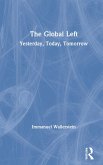Revision with unchanged content. How do minds come into the world? This discussion experienced quite some stimulation due to analogies to insights in other scientific areas. The second half of the 20th century saw the critical examination to those analogies. This book tries to deliver a way in which the heavily attacked psychophysical identity claim can be understood so that the counterarguments lose some if not all of their appeal. This is done by investigating the thesis that predicates about the mind refer to the same entities as predicates about the body under the focus of the type/token distinction. Furthermore, it is analysed, what scientific types the categories of a scientific taxonomy are. After objections to the identity thesis are considered, it is argued that the philosophical view about folk psychological types stands in contrast to scientific types which are the target of psychophysical identity claims. Finally, the analysis of types being the result of categorisingtokens with respect to their micro structure is used to elaborate the claim that type identity holds if token identity does. The book is addressed to a general and scientific audience with at least minimal knowledge of the mind-body problem.
Hinweis: Dieser Artikel kann nur an eine deutsche Lieferadresse ausgeliefert werden.
Hinweis: Dieser Artikel kann nur an eine deutsche Lieferadresse ausgeliefert werden.








